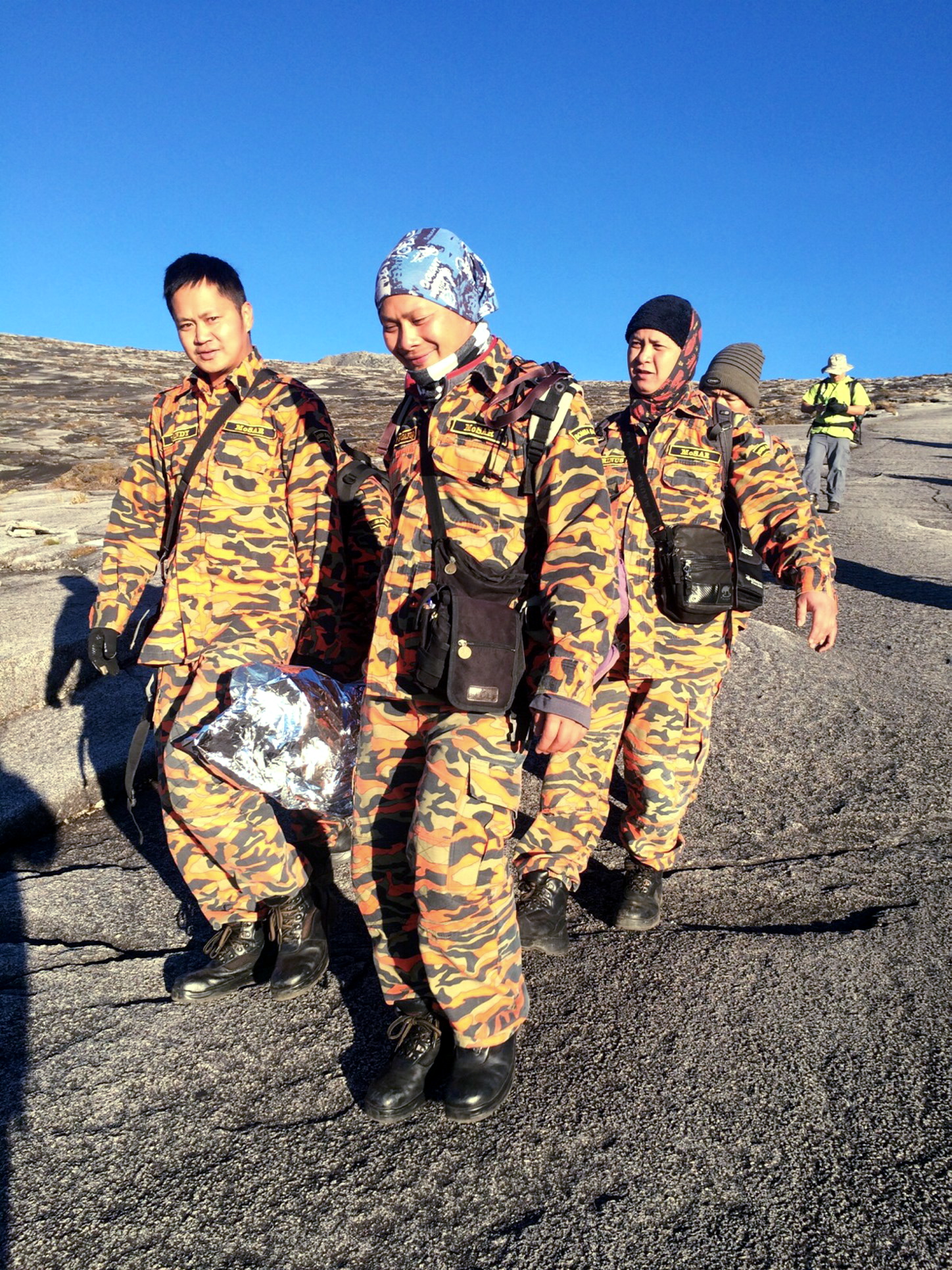ID :
392976
Wed, 01/06/2016 - 11:41
Auther :
Shortlink :
http://m.oananews.org//node/392976
The shortlink copeid
The Unsung Heroes Of Kinabalu

By Noorazlina Jindeh
After the mountaineering activities resumed on Mount Kinabalu on Dec 1, 2015 Bernama's writer Noorazlina Hj Jindeh joined the group that scaled Mount Kinabalu using a new route for the first time.
Part three, the final part, delves on the Mountain Search and Rescue Auxiliary Firemen (PBB MoSAR) who have proven their capabilities during the maiden climb using the Ranau Trail.
KUNDASANG (Sabah, Malaysia), Jan 6 (Bernama) -- Little was the world aware of the amount of strength and grit mountain guides had until an earthquake shook Mount Kinabalu in June 2015.
Measuring 5.9 on the Richter scale, it shook Ranau at 7.15am on June 5 and claimed the lives of four mountain guides Valerian Joannes, Ricky Masirin, Joseph Selungin and Robbi Sapinggi.
Thirteen climbers also lost their lives that day, while many others were stranded. It was then that many realised the courage and selflessness these mountain guides exhibited when it comes to saving the lives of others.
TRAINING
Following the heartbreaking incident, the Minister of Urban Wellbeing, Housing and Local Government Abdul Rahman Dahlan proposed for the formation of a rescue team comprising mountain guides registered with Sabah Parks.
On June 22, Abdul Rahman officially launched the first Mountain Search and Rescue Auxiliary Firemen (PBB MoSAR) team in Malaysia, based at the Fire and Rescue Station in Ranau.
The selection was based on their expertise, experience and ability to work at high altitudes as they would be dealing with emergency situations involving climbers.
Such emergencies could include climbers trapped due to bad weather, injuries, hypothermia, lack of oxygen, getting through collapsed routes or handling the death of climbers.
Before going for preliminary tests, applicants had undergo physical tests as well as an interview. Mountain guides who made the cut then went for 100 hours of training within 10 days, conducted by the Malaysian Fire and Rescue Academy in Sabah.
They were taught, among others, search and rescue procedures, the management of victims, navigating with compass and maps, first aid, using pulley anchor systems and procedures in transferring victims via helicopter.
PRACTICAL EXPERIENCE
They were also exposed to real life situations through mountain rescue simulations at the hills in Kampung Logub, Tamparuli.
At the end of the training, the mountain guides sat for several examinations measuring the depth of their understanding in the training they had undergone.
In August 2015, 40 trainees graduated from basic training and were assigned to the Fire and Rescue Department and Sabah Parks to assist in rescue operations when Mount Kinabalu reopened on Dec 1, 2015.
However, the training does not stop there. Ongoing training is carried out at the Ranau Fire and Rescue Station to keep their efficiency and expertise at an optimum level.
HEROES OF KINABALU
Twelve PBB MoSAR are required to be at the mountain at any given time with an allowance of US$1.36 (RM6) an hour.
Their expertise were recently tested when several climbers during the inaugural climb after the mountaineering activities resumed on Mount Kinabalu experienced problems during their descent, such as muscle cramps and altitude sickness.
During emergencies, it is the PBB MoSAR’s task to take over from mountain guides and help affected climbers with their descent.
The writer herself who was affected with 'Acute Mountain Sickness' (AMS) during a recent climb saw for herself how efficiently this transition took place halfway.
Although it was the third climb up Mount Kinabalu and second time reaching the peak, it was the first time that this writer experienced AMS.
The writer had a glucose drip up her arm and had to be piggybacked by a PBB MoSAR during descent.
His movements were so quick that at times this writer felt he was running down on even ground, not steep, treacherous cliffs.
It was eerie to imagine the consequences of a misstep and the writer fervently prayed that they would reach Panalaban quickly.
At times the writer could not contain her fears, but the PBB MoSAR comforted her by reminding that he was highly trained for such situations.
At last, at 11.10am, they safely arrived at Panalaban, along with other mountain guides.
The writer noted that the physical endurance of PBB MoSARs when carrying climbers down is truly astonishing.
According to the Ranau Fire and Rescue Station Chief, Jimmy Lagung, two Australian climbers also had to be carried down during on that day due to muscle cramps and sprains. (photoBERNAMA)
-- BERNAMA





